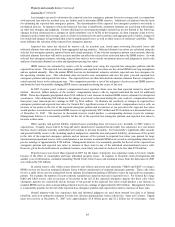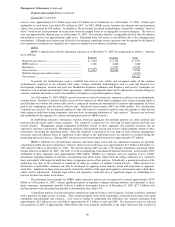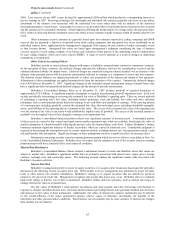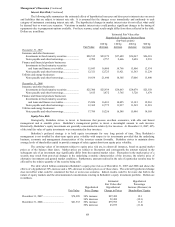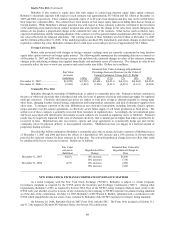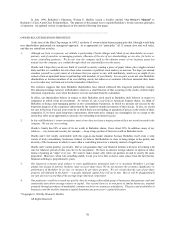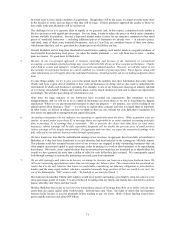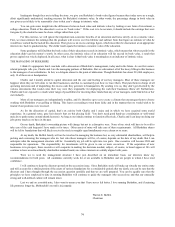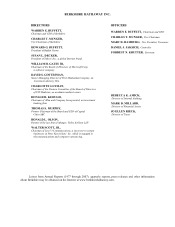Berkshire Hathaway 2007 Annual Report Download - page 76
Download and view the complete annual report
Please find page 76 of the 2007 Berkshire Hathaway annual report below. You can navigate through the pages in the report by either clicking on the pages listed below, or by using the keyword search tool below to find specific information within the annual report.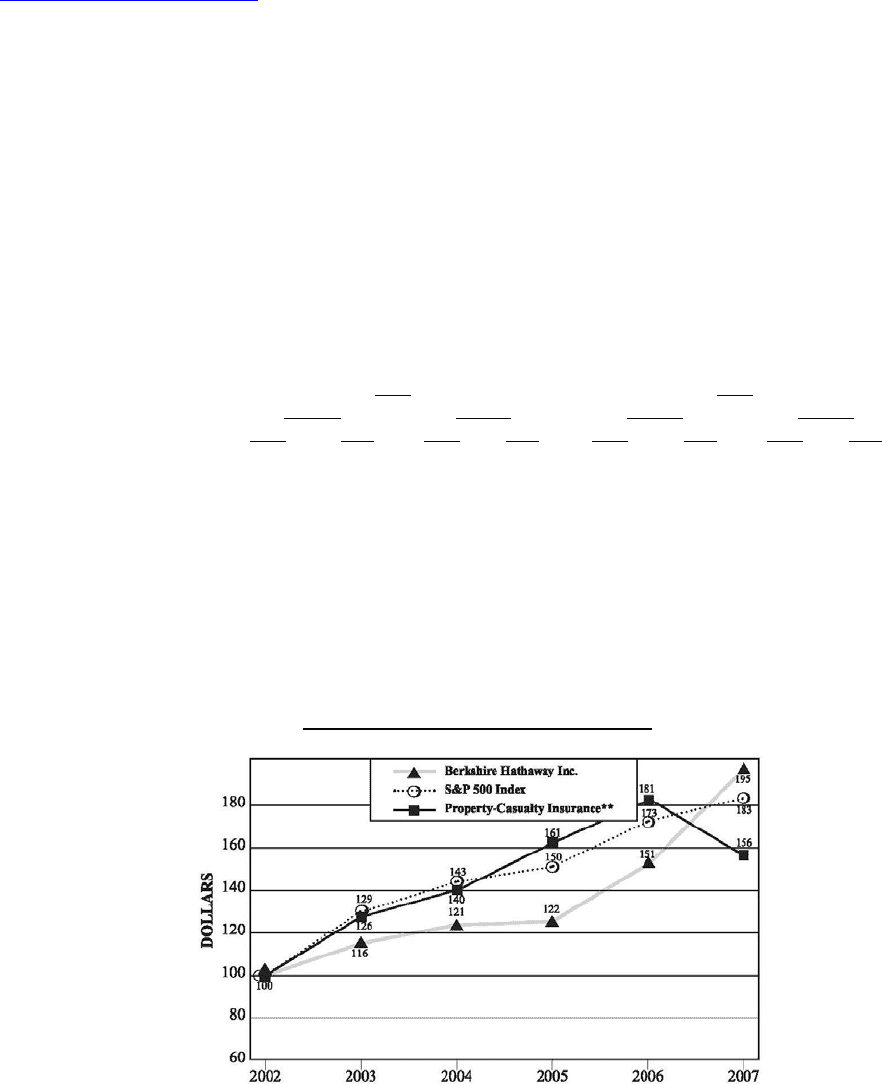
BERKSHIRE HATHAWAY INC.
COMMON STOCK
General
Berkshire has two classes of common stock designated Class A Common Stock and Class B Common Stock. Each share of
Class A Common Stock is convertible, at the option of the holder, into 30 shares of Class B Common Stock. Shares of Class B
Common Stock are not convertible into shares of Class A Common Stock.
Stock Transfer Agent
Wells Fargo Bank, N.A., P. O. Box 64854, St. Paul, MN 55164-0854 serves as Transfer Agent and Registrar for the
Company’ s common stock. Correspondence may be directed to Wells Fargo at the address indicated or at
wellsfargo.com/shareownerservices. Telephone inquiries should be directed to the Shareowner Relations Department at 1-877-602-
7411 between 7:00 A.M. and 7:00 P.M. Central Time. Certificates for re-issue or transfer should be directed to the Transfer
Department at the address indicated.
Shareholders of record wishing to convert Class A Common Stock into Class B Common Stock may contact Wells Fargo in
writing. Along with the underlying stock certificate, shareholders should provide Wells Fargo with specific written instructions
regarding the number of shares to be converted and the manner in which the Class B shares are to be registered. We recommend that
you use certified or registered mail when delivering the stock certificates and written instructions.
If Class A shares are held in “street name,” shareholders wishing to convert all or a portion of their holding should contact
their broker or bank nominee. It will be necessary for the nominee to make the request for conversion.
Shareholders
Berkshire had approximately 4,600 record holders of its Class A Common Stock and 13,900 record holders of its Class B
Common Stock at February 15, 2008. Record owners included nominees holding at least 550,000 shares of Class A Common Stock
and 13,800,000 shares of Class B Common Stock on behalf of beneficial-but-not-of-record owners.
Price Range of Common Stock
Berkshire’ s Class A and Class B Common Stock are listed for trading on the New York Stock Exchange, trading symbol:
BRK.A and BRK.B. The following table sets forth the high and low sales prices per share, as reported on the New York Stock
Exchange Composite List during the periods indicated:
2007 2006
Class A Class B Class A Class B
High Low High Low High Low High Low
First Quarter.......................... $110,700 $103,800 $3,690 $3,460 $90,600 $86,200 $3,013 $2,860
Second Quarter ..................... 110,490 107,200 3,679 3,538 93,100 85,400 3,099 2,839
Third Quarter ........................ 120,800 108,600 4,000 3,558 97,100 89,400 3,238 2,978
Fourth Quarter ...................... 151,650 118,400 5,059 3,949 114,500 95,200 3,825 3,165
Dividends
Berkshire has not declared a cash dividend since 1967.
Stock Performance Graph
The following chart compares the subsequent value of $100 invested in Berkshire common stock on December 31, 2002 with a
similar investment in the Standard and Poor’ s 500 Stock Index and in the Standard and Poor’ s Property - Casualty Insurance
Index.**
Comparison of Five Year Cumulative Return*
* Cumulative return for the Standard and Poor’s indices based on reinvestment of dividends.
** It would be difficult to develop a peer group of companies similar to Berkshire. The Corporation owns subsidiaries engaged in a number of
diverse business activities of which the most important is the property and casualty insurance business and, accordingly, management has used
the Standard and Poor’s Property - Casualty Insurance Index for comparative purposes.
75


